Abstract
A single-cell theory for the development of selectivity and ocular dominance in visual cortex has been generalized to incorporate more realistic neural networks that approximate the actual anatomy of small regions of cortex. In particular, we have analyzed a network consisting of excitatory and inhibitory cells, both of which may receive information from the lateral geniculate nucleus (LGN) and then interact through cortico-cortical synapses in a mean-field approximation. Our investigation of the evolution of a cell in this mean-field network indicates that many of the results on existence and stability of fixed points that have been obtained previously in the single-cell theory can be successfully generalized here. We can, in addition, make explicit further statements concerning the independent effects of excitatory and inhibitory neurons on selectivity and ocular dominance. For example, shutting off inhibitory cells lessens selectivity and alters ocular dominance (masked synapses). These inhibitory cells may be selective, but there is no theoretical necessity that they be so. Further, the intercortical inhibitory synapses do not have to be very responsive to visual experience. Most of the learning process can occur among the excitatory LGN-cortical synapses.
Full text
PDF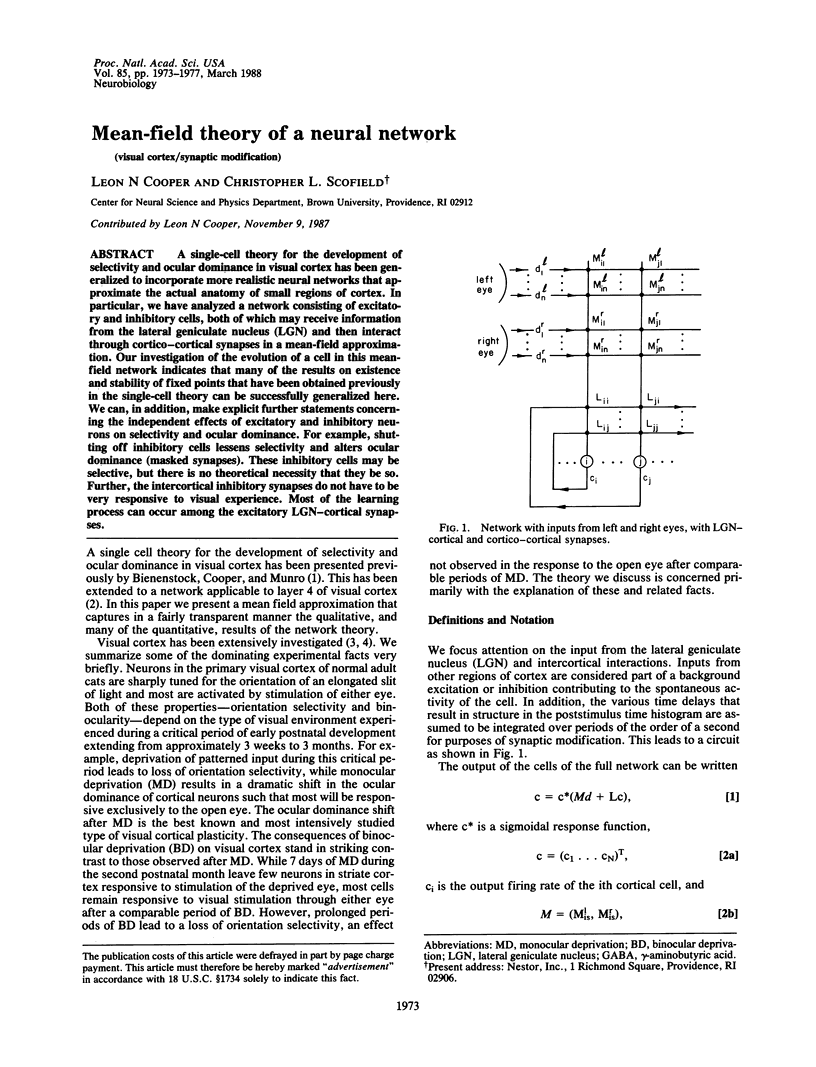
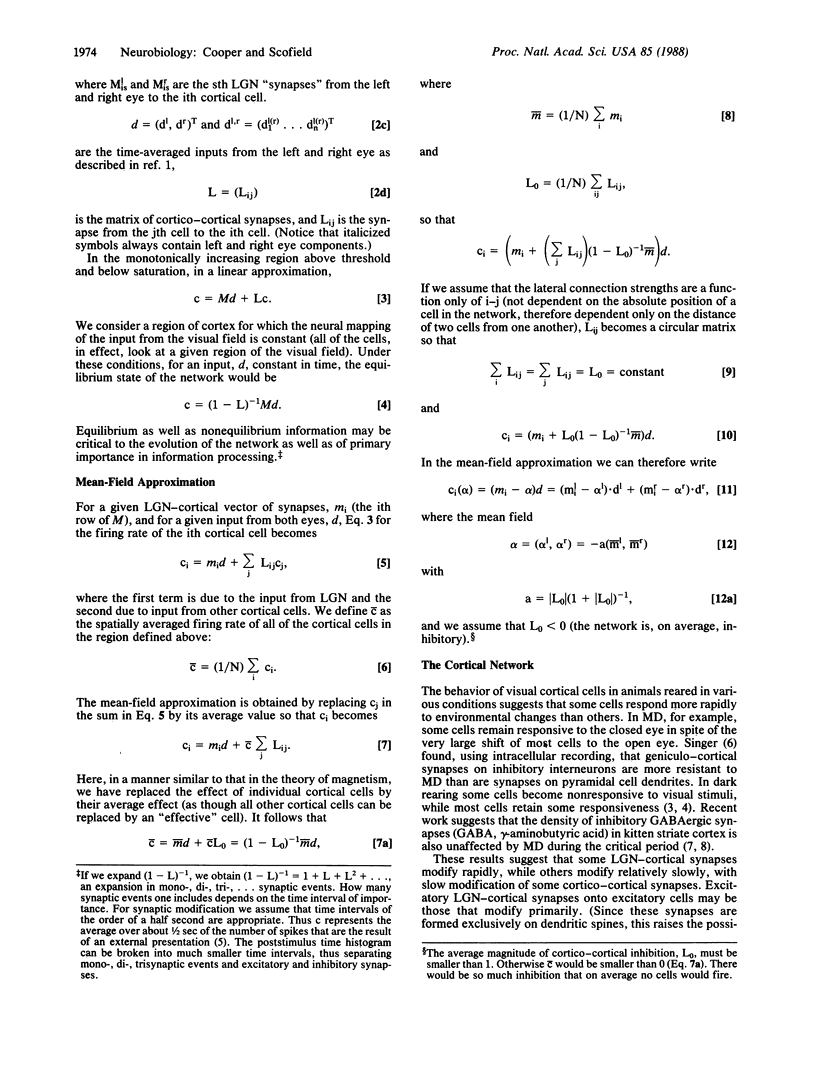
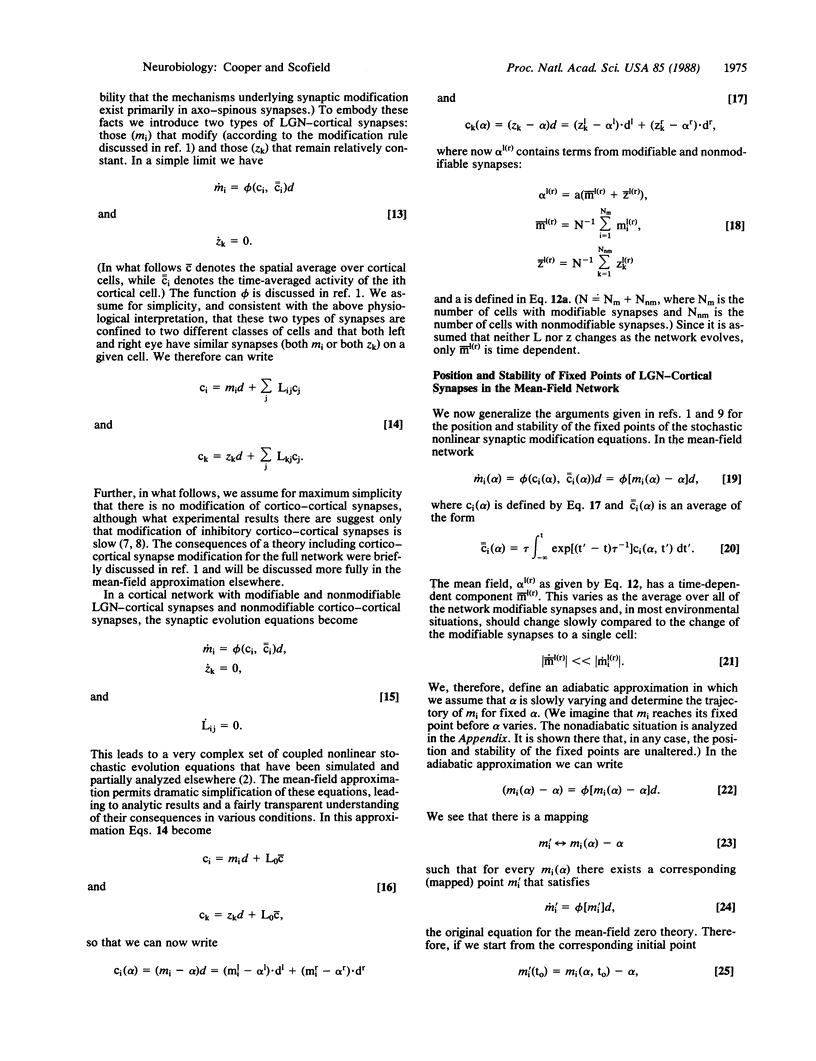
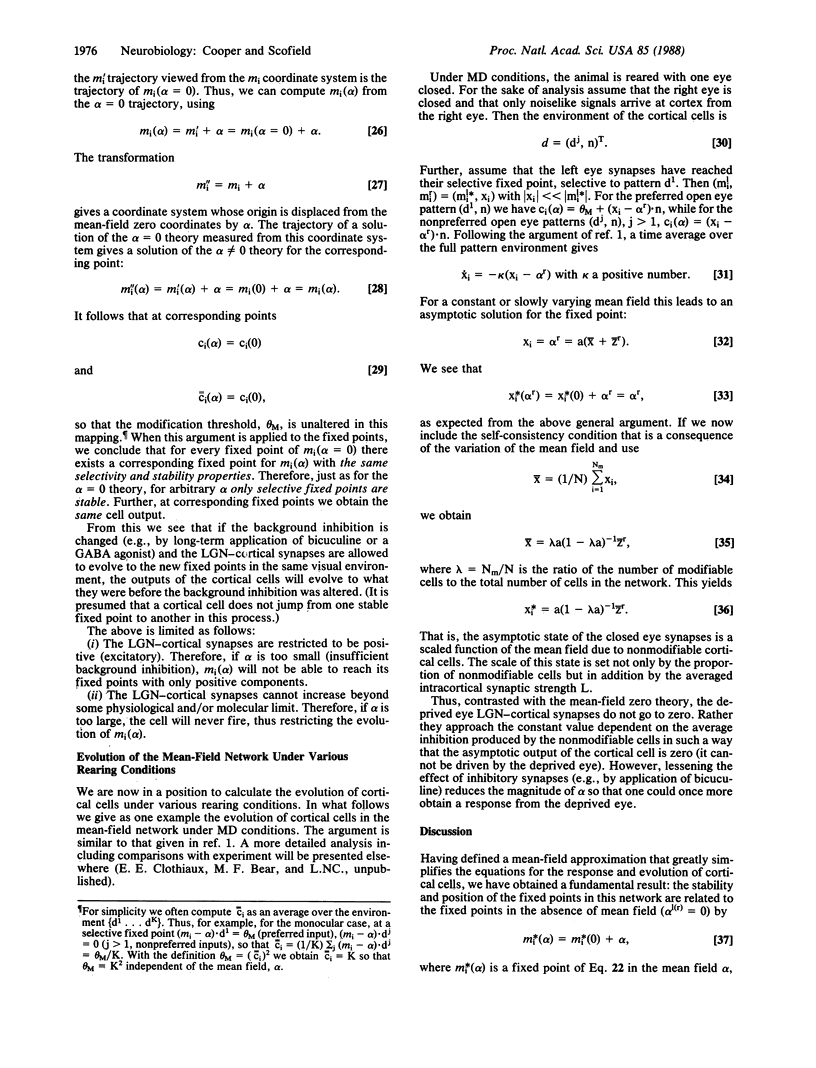
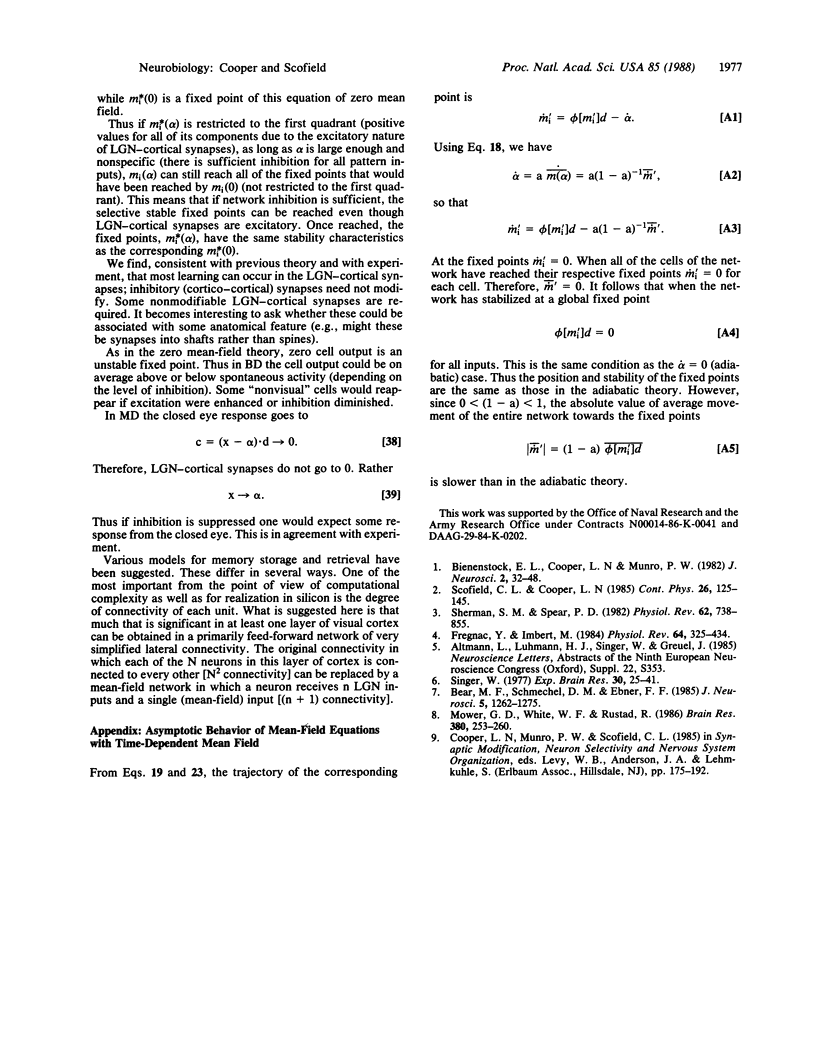
Selected References
These references are in PubMed. This may not be the complete list of references from this article.
- Bear M. F., Schmechel D. E., Ebner F. F. Glutamic acid decarboxylase in the striate cortex of normal and monocularly deprived kittens. J Neurosci. 1985 May;5(5):1262–1275. doi: 10.1523/JNEUROSCI.05-05-01262.1985. [DOI] [PMC free article] [PubMed] [Google Scholar]
- Bienenstock E. L., Cooper L. N., Munro P. W. Theory for the development of neuron selectivity: orientation specificity and binocular interaction in visual cortex. J Neurosci. 1982 Jan;2(1):32–48. doi: 10.1523/JNEUROSCI.02-01-00032.1982. [DOI] [PMC free article] [PubMed] [Google Scholar]
- Frégnac Y., Imbert M. Development of neuronal selectivity in primary visual cortex of cat. Physiol Rev. 1984 Jan;64(1):325–434. doi: 10.1152/physrev.1984.64.1.325. [DOI] [PubMed] [Google Scholar]
- Mower G. D., White W. F., Rustad R. [3H]muscimol binding of GABA receptors in the visual cortex of normal and monocularly deprived cats. Brain Res. 1986 Aug 20;380(2):253–260. doi: 10.1016/0006-8993(86)90220-9. [DOI] [PubMed] [Google Scholar]
- Sherman S. M., Spear P. D. Organization of visual pathways in normal and visually deprived cats. Physiol Rev. 1982 Apr;62(2):738–855. doi: 10.1152/physrev.1982.62.2.738. [DOI] [PubMed] [Google Scholar]
- Singer W. Effects of monocular deprivation on excitatory and inhibitory pathways in cat striate cortex. Exp Brain Res. 1977 Oct 24;30(1):25–41. doi: 10.1007/BF00237856. [DOI] [PubMed] [Google Scholar]


